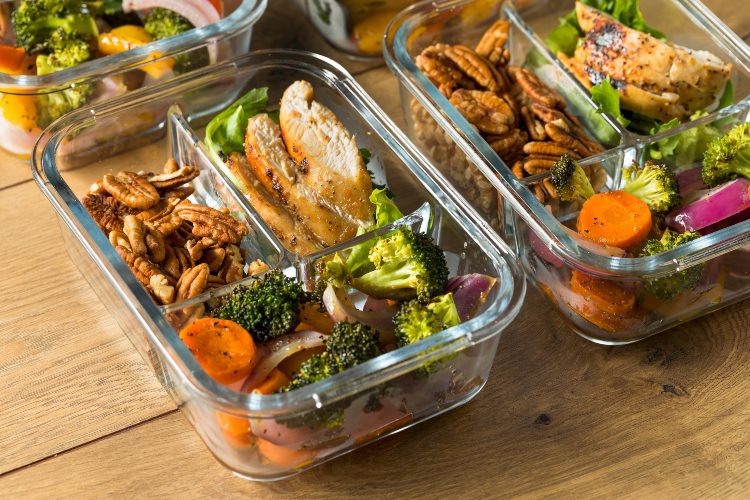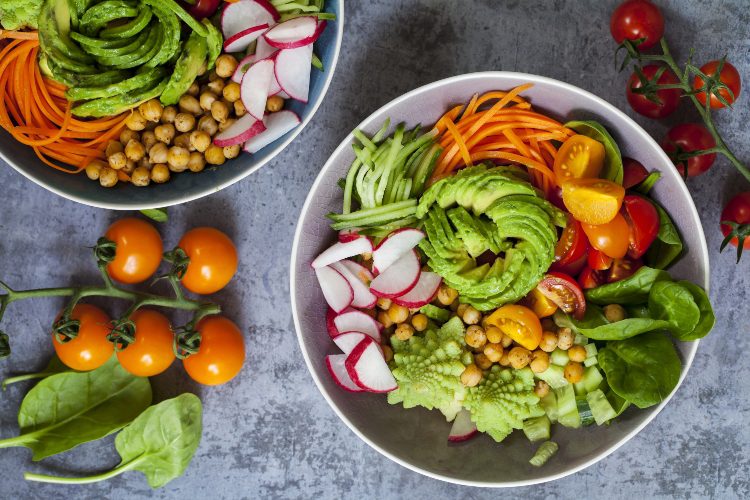
Brent Hofacker/Shutterstock
What does a healthy diet consist of, exactly? Moreover, does eating the same thing every day, even if it's healthy, do anything better for you? Now we have some answers...
The Same Diet Every Day?

Magdanatka/Shutterstock
Sadly, many Americans find the idea of eating healthy consistently quite overwhelming! So, to make it easier, many people find a few healthy meals and stick to them closely. "When forming new habits, it's easy to get overwhelmed by trying to do too many things (or eat too many new foods) at once," says Chelsey Amer, MS, RDN, CDN, and creator of the blog CitNutritionally. "To make it more accessible, I suggest learning how to prepare a few healthier foods you love, and stick with those until you're ready to expand your repertoire."
However, does this method really work? Well, there are certainly some pros! For instance, eating the same thing every day reduces stress - no more worrying about what to eat. It also saves money as your grocery list always stays the same, and you're less likely to wander. But that's not all! Recent research by the American Heart Association found that people who ate a greater variety of food had unhealthier eating habits. That's right! You see, due to their greater diversity in food, they are more processed foods and refined grains, both of which are bad for you!
Meanwhile, eating the same thing every day can also lead to a lower calorie intake! "Repeated exposure to the same foods has been found to reduce overall energy intake in women due to 'food habituation,'" explained Amer. "When there are a wide variety of foods available to sample, you may (inadvertently) delay feelings of fullness or satisfaction from your meal and increase the amount of food you eat."
That all sounds great, right? Well, before you start meal planning, you should also know there are some downsides to eating the same thing every day...
There Are Downsides, Too…

Drazen Zigic/Shutterstock
Think of eating like a rainbow, says Kate McGowan, RD - you need all the colors for a healthy diet! "If you only eat orange vegetables, like carrots and sweet potatoes, you will be getting a good amount of fiber, vitamin A and vitamin C, but you will be missing out on vitamin K, folate and lutein found in dark green vegetables like kale or broccoli," she explained. To support this, a new study showed that a limited diet has a negative impact on gut health. Those with varied diet had "a competitive advantage over others," the research found.
What can you do to stay healthy without walking down every aisle in the store? Well, focus on reliable food groups, instead of specific ideas. "I like to emphasize food groups instead of single foods within each group; for example, instead of choosing brown rice for every meal, consider other whole grains," Allison Knott, MS, RDN, CSSD advised.
Likewise, focus on food groups or nutrients, instead of specific items. "I suggest protein and fiber at every meal. I might recommend a salad every day, but mixing up the protein (eggs, beans, meat, nuts) and fiber (vegetables, nuts) options transforms a boring salad into a new meal with nutritional diversity," advised McGowan.
Sources: NBC, The Takeout



